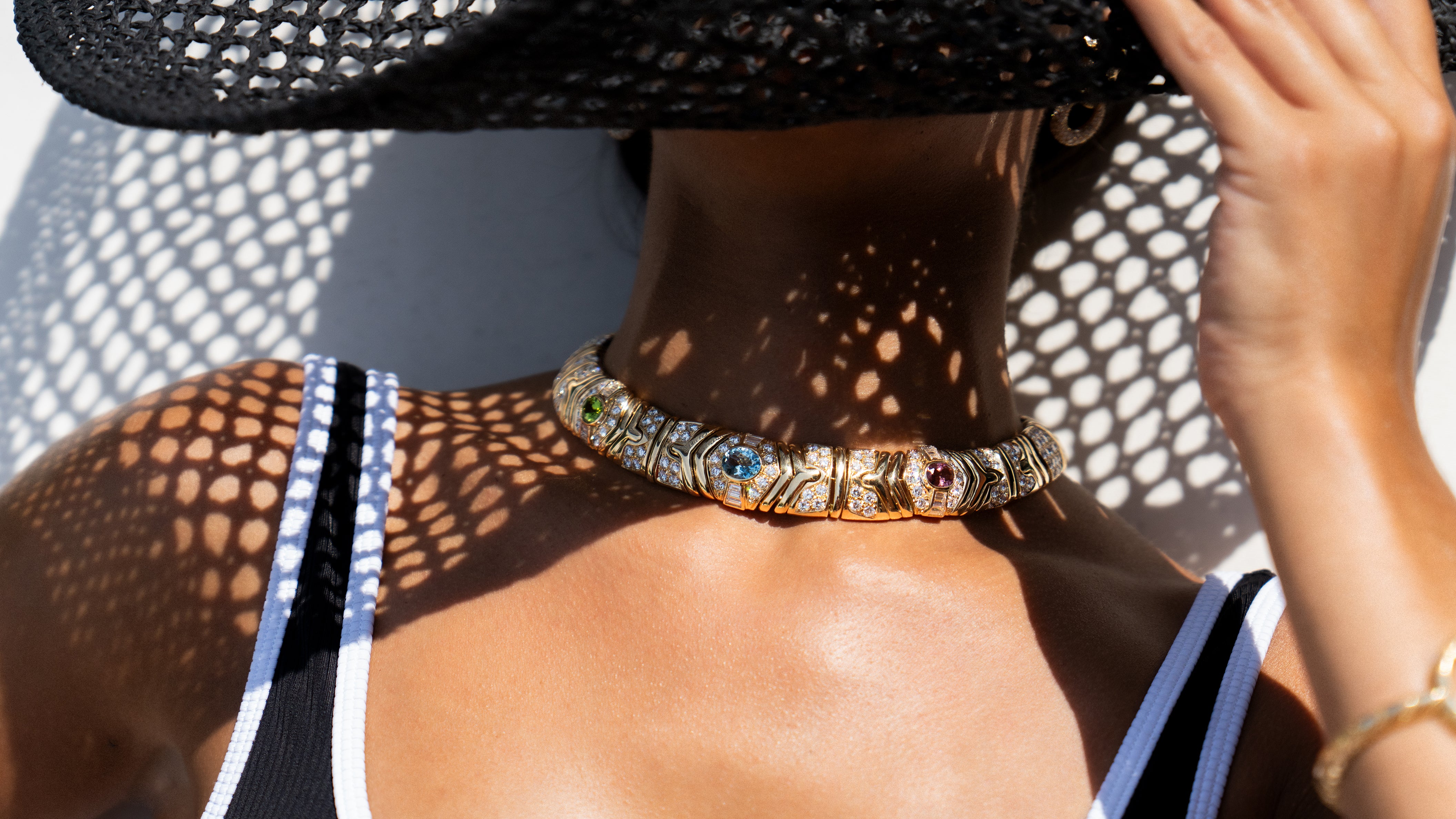Contemporary Jewelry Era: 1965 - Current
Modern jewelers take many of their cues from eras past while putting their own unique spin on the vast array of jewels they produce.
Not the Stats Quo
In previous eras, modern jewelry was chosen for its monetary value, as a way to flaunt one’s status. Indeed, this holds true to some extent. However, it’s more likely that modern celebrities and society mavens will select jewelry for its intrinsic beauty and as a reflection of their own good taste. Materials matter, of course, but the design matters more.
As women began to hit the workforce in record numbers, the demand for casual styles increased. The most in-demand jewelry could be worn at the office and on the town. Layered necklaces and stacking bracelets became popular, as one’s look could be ramped up for the evening by merely adding more pieces.
After decades of declining sales, men’s jewelry designs began to experience an uptick. Rings (in addition to the wedding band,) gold chains and bracelets and stud earrings came into vogue. Non-traditional metals were introduced, such as tungsten and stainless steel, used to fashion rings, chains, and accessories. And Swiss timepieces have become an essential part of a man’s wardrobe.


Design by Decade
The Late 1960s
France’s domination of fashion gave way to emerging Italian designers such as Gucci, Ferragamo, and Pucci. Hats and gloves were out. Miniskirts and knee-high boots were in style. Bangle bracelets were a must-have. Art Deco enjoyed a revival, and Op Art also helped to influence the geometric themes, stripes, targets, and black and white abstracts with dizzying effects that were finding their way into high-end jewelry. Space-age jewelry continued to flourish. And “Flower Power” was evident in the abundance of floral motifs and peace signs featured in oversized necklaces and earrings. Natural themes made a comeback in the Age of Aquarius, in wood, ivory, and other natural materials.



The 1970s
Art Nouveau enjoyed a renaissance during the 1970s. The hippie movement inspired a craft revival and an interest in the natural motifs and feminine shapes that defined the Art Nouveau movement. Jewelry themes turned to the spiritual and began to take on a more understated look. Metals, with few gemstones, employed textured surface effects, with carved or molded forms. Rings fashioned in ivory, rosewood, and ebony were stacked along with gold rope rings. Bronze, paired with rose or smoky quartz or amethyst, had an earthy appeal. And Native American themes in silver and turquoise were in high demand.




The 1980s
The 1980s saw a return of bright colors, geometric shapes, bold gold, and big hair. Oversized hoop earrings, chunky necklaces, cuff bracelets, ropes, and chains were must-haves. Brooches came around again in a big way. Bolo necklaces made a brief appearance during this time. Coin jewelry was popular. And designer logos, hitherto unseen, emerged as signature elements in fashion and jewelry.
After being banished in the 1970s, the cocktail ring came back into favor. In modern times, it’s been described as a “right-hand ring” – purported to be a symbol of one’s achievements. No need to wait for a man to buy her jewelry.



The 1990s and Beyond
By the 1990s, things were quieting down. Jewelry returned to a more mainstream vibe, with classic lines and essential basics, such as diamond solitaire earrings and pendants. A decade later, as the new millennium arrived, styles continued to stay the course, with some new trends emerging.
The advent of online shopping gave rise to the demand for personalized jewelry. Diamond engagement rings, birthstone jewelry, and mother’s rings could be designed on one’s digital device to suit one’s personal preferences.




Modern Discoveries
- Tanzanite was discovered in Tanzania in 1967.
- In 1974, tsavorite garnet was found near Tsavo West National Park in Kenya.
- Named after Professor Ken-ichi Sugi, sugilite began to appear on the market in 1979.
Celebrity Style
Twiggy was the iconic model whose fresh, mod persona helped define the “Swinging 60s.” In the 1980s, performers like Madonna and Cyndi Lauper promoted fun and outlandish fashion in all forms.
Many celebrities have worked with jewelry designers to create collections that support philanthropic causes or that promote their values.


Moving Forward
Thanks to modern technology, jewelry from all eras can be viewed and appreciated from anywhere in the world. And designers can continue to be inspired by jewels from the past to create stunning new trends for the next generation of jewelry aficionados.
Browse our Entire Collection of Contemporary Jewelry

